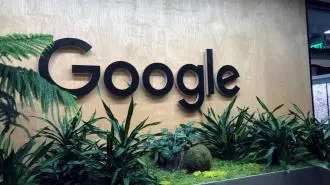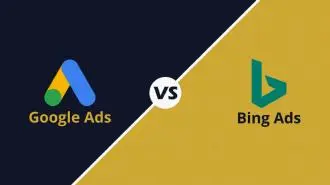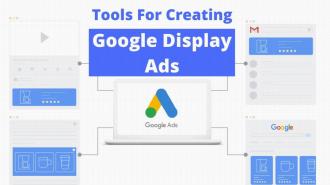If you haven’t heard about machine learning and artificial intelligence (AI), you probably live under a rock!
AI is changing the game, transforming how we live and work. It’s not hard to imagine a day when this “superintelligence” surpasses human abilities, rendering much of our current work unnecessary. Already, AI is making workflows smoother, boosting efficiency, and cutting costs across various sectors, which leads to greater productivity.
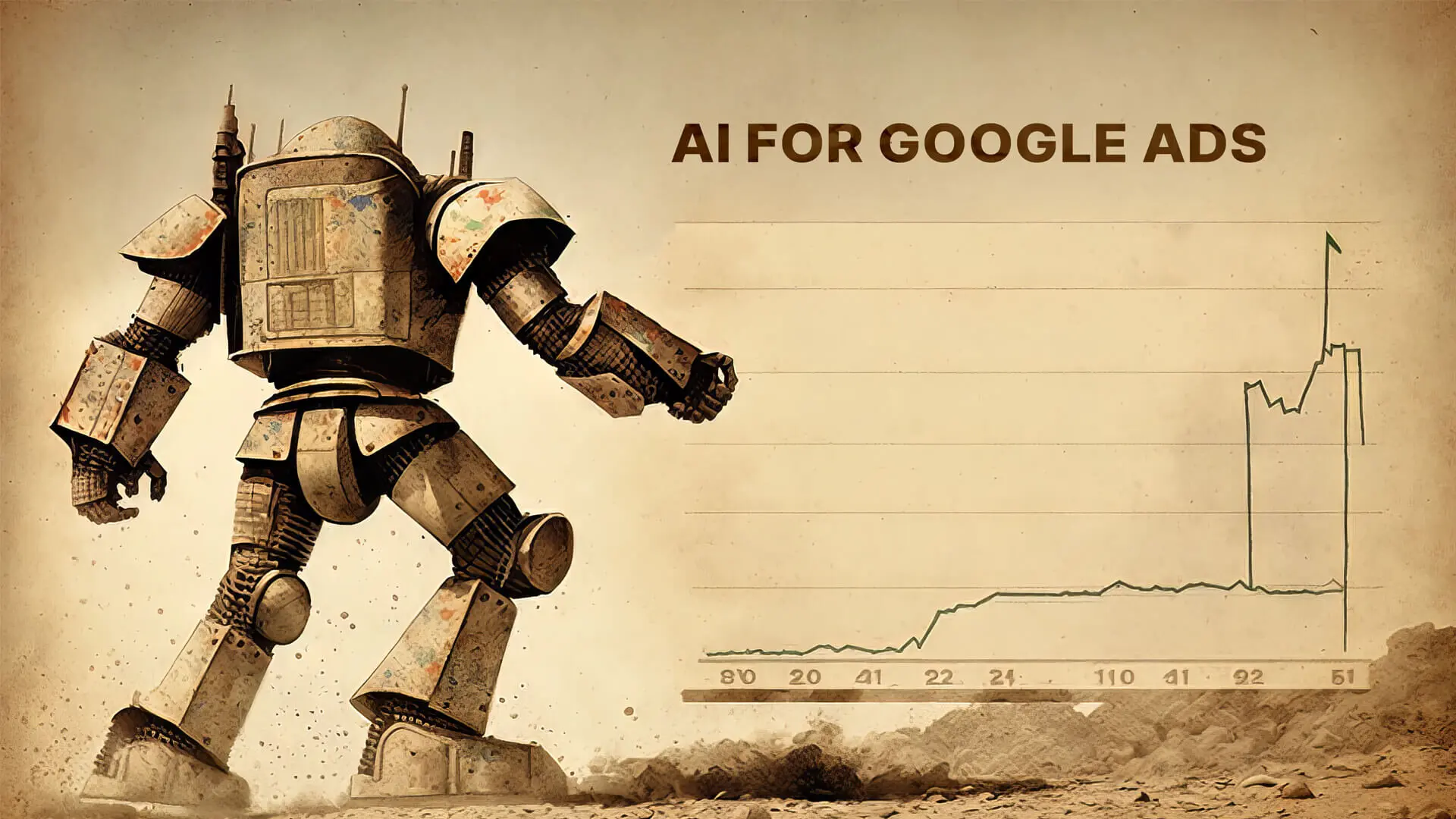
With the aim of providing AI-powered ad solutions, Google Ads embraced AI technology in 2011, leading to its remarkable success in recent years. Serving as the industry’s most advanced marketing tool for businesses of all sizes, Google consistently invests in AI research and development.
So, let’s look at how AI and Google Ads work hand in hand to offer more relevance to users and more traffic to businesses.
What Is AI For Google Ads?
Google Ads (Google AdWords) is a digital advertising platform for businesses to create dynamic ads on Google’s search engine results pages (SERPs) and other websites under the Google Display Network. Unlike other social media platforms, Google brings more specific and relevant results as the user searches for certain keywords or key phrases. Accordingly, businesses can create targeted ads for their audience, resulting in more leads.
Back in 2011, Google kicked off the Google Brain Project, developing a “neural network” over a year. Frequent updates mean Google’s AI can detect what users search for and understand the context and meaning of keywords. The BERT update, in particular, uses natural language processing to enhance its question-and-answer system.
What Are The Benefits Of Using AI In Google Ads?
Andrew Ng, a leading computer scientist, famously said, “Artificial intelligence is the new electricity.” Before AI, writing could be quite the challenge. With limited characters, it’s crucial to capture attention and deliver value all at once. Here are some ways AI boosts Google Ads, which marketers should definitely tap into:
1. Improved Ad Relevance
Artificial intelligence allows Google Ads to analyse landing pages and ad copy to match their relevance to the users’ search queries. As such, it shows relevant ads to the viewers, increasing conversions. This relevance is a major factor in improving the user experience and ensuring optimum usage of the ad budget.
2. Better Ad Creativity
Leveraging the power of AI, Google Ads generator AI can analyse past user data and ad campaigns, enabling AI algorithms to suggest impactful headlines, ad copies, images, and more. This empowers your business to optimise resources and achieve cost savings while creating highly effective ads.
3. Accurate Audience Targeting
AI makes Google Ads pinpoint accurate by examining user data like search queries, behaviour, and browsing patterns. By harnessing this information, AI crafts detailed user profiles, ensuring your ads reach the right audience, including past customers.
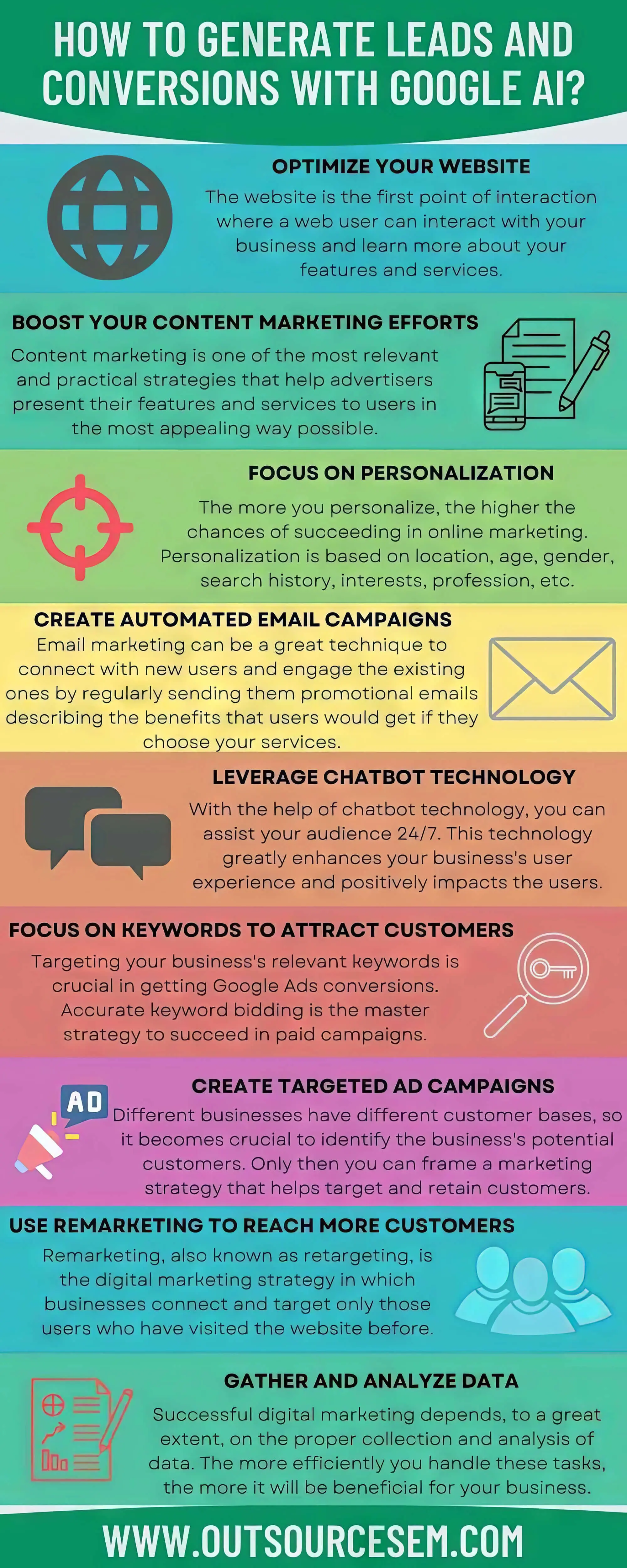
4. Real-time Performance Data
AI Google Ads algorithms offer real-time data on the performance of your ad campaigns. Referring to this data, a business can alter its Google Ads campaigns and boost their effectiveness and relevance. And with improved targeting and messaging, businesses can increase their conversions drastically.
5. Increased Competitiveness
With Google Ads AI being the talk of the town, businesses can take advantage of this sophisticated technology to stay ahead of the game. As they make positive changes in their local campaigns and create effective ads, they will have the edge over competitors who may need AI-driven Google Ads for marketing.
Moreover, as businesses continue to monitor their ad performance and involve AI in Google Ads campaigns, they can adapt to the dynamic market effectively, thereby remaining competitive.
6. Better User Experience
Google AI for ads creates a win-win situation for businesses and their customers/viewers. Especially for mobile users, AI-enhanced Google Ads help them enjoy a seamless experience, and as a result, businesses earn more brand loyalty. So, the customer readily gets the product/service they want, while the brand enjoys repeat sales.
7. Cost Savings
By using AI for better Google Ads, businesses can reduce cost-per-click and cost-per-conversion. As such, AI algorithms analyse campaign performance and recognise loopholes where the business can make positive amendments. Such changes can include but are not limited to, targeting specific keywords, adjusting bids, identifying underperforming ads, etc. As a result, businesses can use their ad spend judiciously and increase their return on investment (ROI).
What Are The Limitations Of AI In Google Ads?
1. Inability To Understand Human Emotions
No matter how much you develop and improve technology, computers and machines can never have human feelings. Similarly, AI-optimised Google Ads cannot understand human emotions, too. This is because humans function in teams and practise their management skills to complete tasks and achieve goals.
While one cannot deny that robots are “super intelligent,” they cannot supersede the power of human connections and emotions. For instance, AI-based advertising may not be able to understand and evoke specific emotions like humour, sympathy, etc. So, without understanding such emotions, AI may show your ads to the wrong audience, failing to generate the desired result.
Because of this major drawback, many believe AI can empower humans but not replace them.
2. Lack Of Creativity
Adding to the previous point, AI is not creative and cannot think outside the box when creating ads or any type of content. Consequently, AI in digital marketing cannot generate unique and attractive ads that help you stand out among competing brands.
3. Inability To Adapt To Changes
Google Ads leverages AI-powered ads, which are designed with a specific framework. However, AI may face challenges in recognising unexpected changes in trends, leading to limitations in adaptability and accurate predictions.
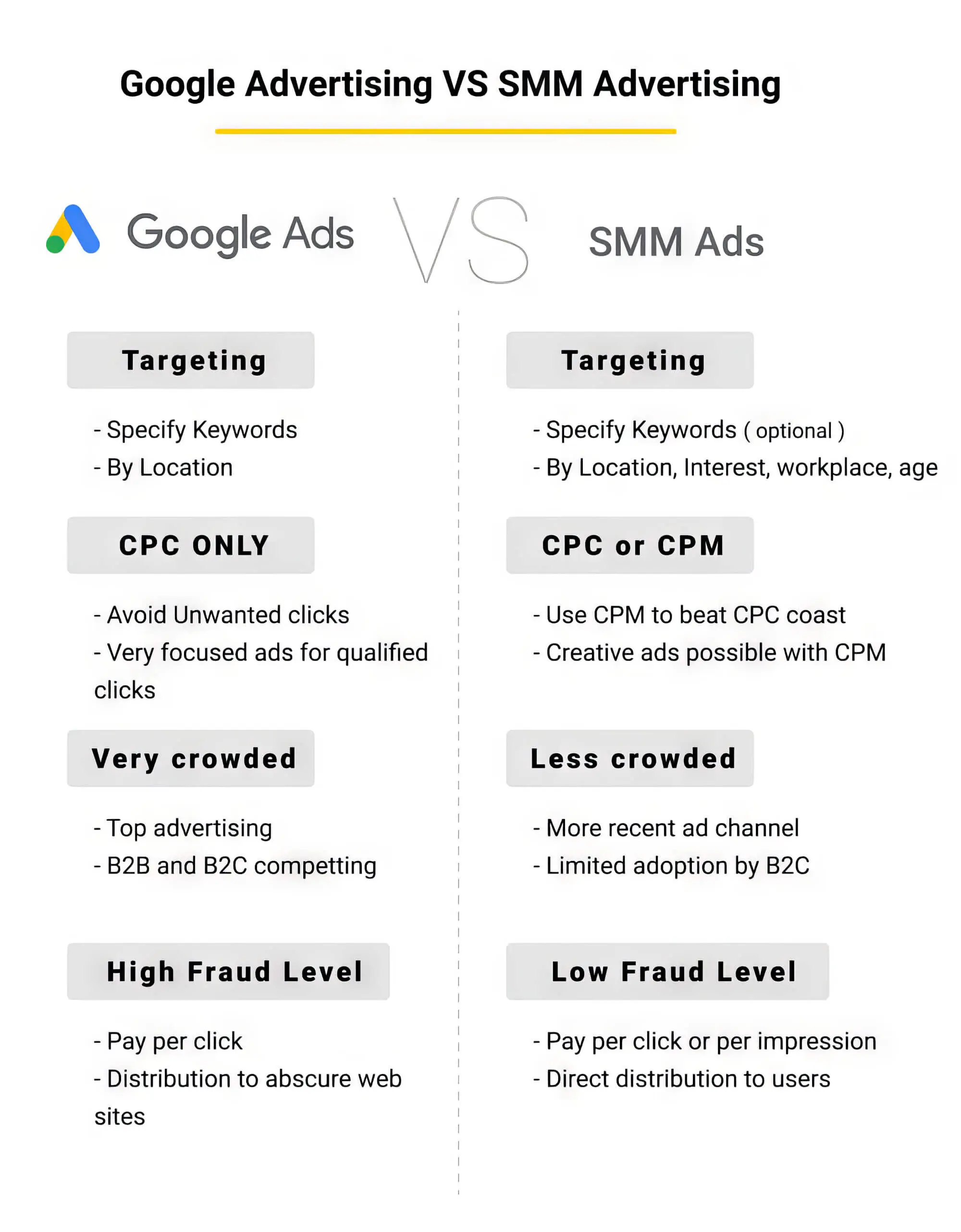
4. Lack Of Context Awareness
Another major limitation of AI-powered PPC advertising is the need for more context awareness, as AI may need help understanding the meaning of certain keywords used in ads. So, while trying to reach the target audience of a specific product/service, AI may not always understand the context of the same. This, again, leads to showing the Google ad to the wrong user.
5. Limited Data Sets
While ad automation is effective within its trained and developed parameters, it is essential to note that the capability of an AI application is directly related to the richness of the data it is trained on. However, despite the vastness of available data sets, limitations still exist, restricting AI’s ability to generate highly relevant ad content. Data-driven attribution models can help address this challenge by leveraging comprehensive data analysis to enhance the relevance and effectiveness of ad campaigns.
6. Biases
Behind the development of AI, there is a human. So, if the human bears some biases or uses biased data sets, the AI-automated ad campaign will also contain that very bias. Accordingly, the ads may be shown to a certain demographic while completely invisible.
How To Use AI In Google Ads?
1. Budget Control
Marketers and businesses can employ AI in their budgeting module and manage the performance of one campaign at a time.
We all know that poorly performing Google Ads will only drain your money, but it is still difficult to avoid them. With a traditional advertising model, one can only continue placing these ads without generating revenue.
But with artificial intelligence and machine learning, your automated ad campaign will know when to pause poorly performing ads and adjust the budget accordingly. The budget will no longer be divided equally among ad campaigns but instead, be split based on performance.
So, poorly performing ads will get less budget while well-performing campaigns will get more. And if a single campaign cannot generate clicks, the automation will pause it completely.
Your marketing team can relax more while AI handles the heavy lifting!
2. Ad Targeting
Although you can optimise ads using other methods, they will only generate revenue if it reaches the right people at the right time. With AI-based Google Ads targeting, the algorithms can analyse user behaviour, demographics, search history, etc. Consequently, your ad will be visible to those most likely to convert.
3. Automated Bidding
Bidding depicts the amount of money you pay for single leads and clicks. You obviously wouldn’t want to bid too high and overspend for clicks. But if you bid too low, your competitors may overpower you.
Here, Google Ads smart bidding comes into play as an AI-automated tool that adjusts bids based on user behaviour and demographics. This ensures that more bidding emphasis is placed on individuals likely to become customers rather than those with little interest in your business. By leveraging preferred landing pages, you can enhance the effectiveness of this bidding strategy.
Further, automation models can predict price changes, assess data, and respond to changes in the market. By doing so, AI ensures that your PPC campaigns always stay relevant.
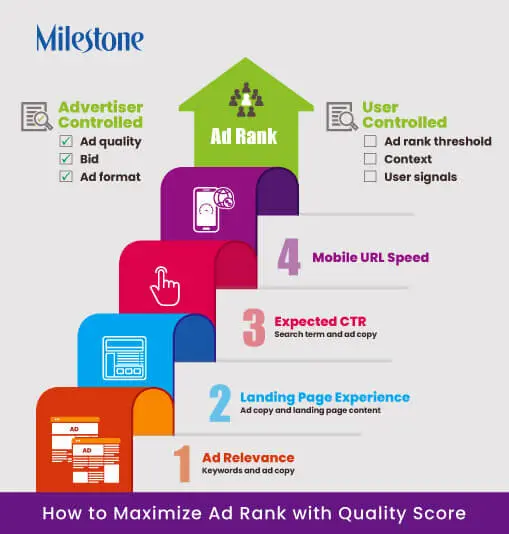
4. Dynamic Ads
Dynamic Search Ad campaigns automatically generate content based on the ad placement, utilising landing pages and their content to target relevant users likely to convert. This approach also extends to video assets, allowing businesses to create dynamic and engaging ads for their target audience.
Afterwards, Google uses other advertising tools like A/B testing to ensure your ad reaches the right people. On top of that, Google continues to assess previous performance, leading to better ads and loyal customers. With further development, Google will allow businesses to choose the time of day, weather, and other factors while generating relevant ads for their target audience.
5. Responsive Search Ads
As the name suggests, these ads are “responsive” as they automatically adjust their content (and sometimes, format) to match a user’s search query. This is possible because AI algorithms can inspect user search behaviour and optimise ad content accordingly. And just like the AI, as mentioned earlier, tools for Google, responsive search ads allow businesses to make the most of their advertising budget by showing their ad to the right audience.
6. Ad Optimisation
Leveraging AI in digital advertising, businesses can analyse performance data of their existing ads and make necessary adjustments such as editing ad copy, rewriting headlines, or changing targeting options. By implementing these modifications, your company can effectively allocate its advertising budget and maximise the performance of existing ads.
7. Remarketing
Ever wondered why you ended up seeing that one dress from H&M all over your browser despite resisting the strong urge to add it to your cart? Well, that’s how remarketing works. AI algorithms identify people who have interacted with your business in the past and show even the slightest bit of interest in its products/services. Yes, your computer/mobile is always watching you!
But jokes apart, remarketing is an excellent AI tool for businesses to pursue interested viewers and cash on them.
What Are The Best AI Tools For Google Ads?
At this point, it’s clear that businesses need AI for more impactful Google Ads. However, without the right tools, costs can spiral. Here are some top picks that’ll help you optimise ads and boost ROI:
1. Madgicx
This advertising tool offers an all-in-one system for businesses to use AI-powered marketing strategies. Madgicx allows you to streamline ad-buying workflows and practise social media ad automation tactics while creating ad content that instantly matches the possible audience variations.
2. Morphio
Morphio allows businesses to track all data types from their digital marketing platforms, including fraudulent trends. Plus, you will be alerted every time something goes wrong, thereby adding a layer of security to your ad campaigns.
3. RevealBot
If your business wants to take advantage of advertising on social media channels like Facebook and Tiktok, along with Google.
Using AI for Google Ads
AI and machine learning fuel marketers and businesses to succeed in today’s dynamic industry. Employing appropriate AI tools and strategies allows businesses to achieve their marketing objectives efficiently, leading to high-performing ads, increased ROI, and overall business growth. But remember — technology is only as powerful as the hand that wields it.
So, while AI in digital marketing can help humans generate better ads, it must be combined with human intellect to ensure the best results.

